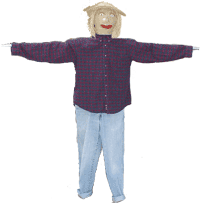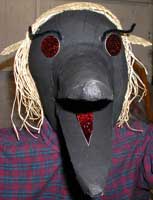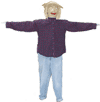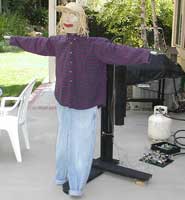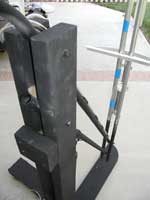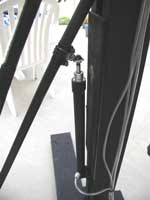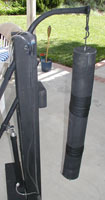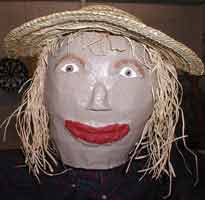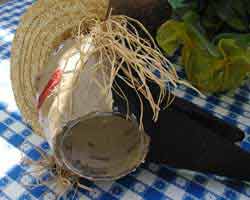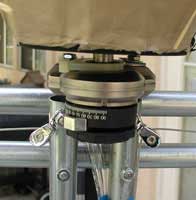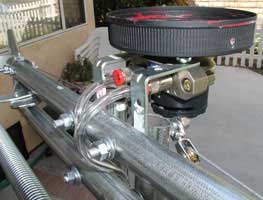|
|
|
|
|
|
|
|
At first glance, this is just a plain old scare crow, standing in the garden, not really doing his job, as he's surrounded by a half dozen crows. All of a sudden, his head spins around and he turns into a giant "scary crow". The surrounding crows' eyes pulsate a terrifying red glow, the Scary Crow raises into the air and thrusts itself toward the trick-or-treaters. His arms reach out as all the crows join in a chorus of scary crow sounds. The following is a brief description of how the Scary Crow works. I'd like to thank Brad Fraley for his terrific 4 Bar Linkage Simulation Program that really saved a lot of time and effort. Also, thanks to Spirit Kanaka for suggesting Cabela's as source for plastic crow decoys. |
|
|
|
|
|
|
The Scary Crow consists of:
|
|
|
|
|
Click on any of the following images for a larger view. |
|
|
|
The 4-bar linkage consists of a pair of 2x4s in which a pair of 3/4" electrical conduit tubes pivot. I
chose electrical conduit because it's fairly light weight, cheap, easy to
work, readily available and strong. The linkage is extended by a pneumatic
cylinder with a 10" throw. The cylinder is assisted by a 22 pound
counter weight that hangs off the top tube. His total rise is about 28"
and he moves forward about 18", but standing in front of him, it really
has the effect of much more than that! |
|
|
|
|
My wife made the head out of paper mache.
It's built around a large plastic jar (Kirkland cashews) to make it easy to
install on the rotary actuator (see below). |
|
|
|
A rotary actuator is just a pneumatic cylinder that rotates.
I got this one off Ebay for about $15. It has an
adjustable angle of rotation, but I use it for the maximum 180 degrees. I
attached the jar lid to the top of the actuator so the head will just thread
on. |
|
|
|
|
|
last update 12/2016 |
|
